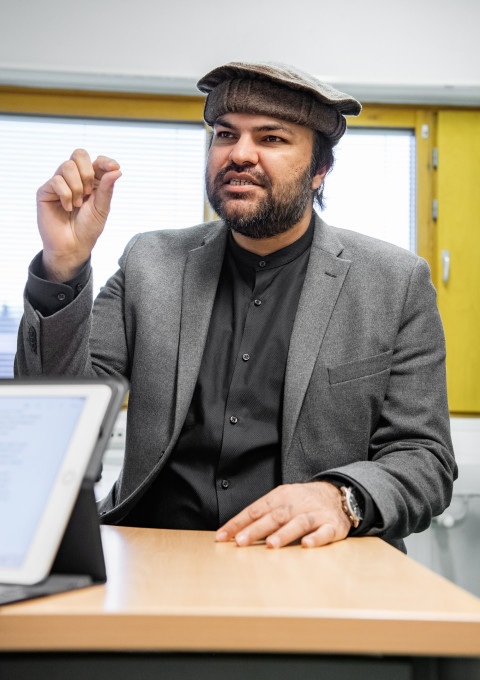How can we better coordinate local and international resources and relief efforts in humanitarian disasters? A free mobile app comes to the rescue.

Launched in March 2019, the ReCent mobile phone app – the name is short for “Resource Centre” – is intended to be used by authorities and inhabitants of disaster-prone areas. Individual users can enter information on skills, manpower or material resources they can offer in case of crisis. This will provide local authorities with a database to resort to.
“When disaster strikes, they will already know what resources are available locally and what kind of international support is needed,” says Dr Sohaib Khan, the brain behind the app.
In addition, the app serves as a communication channel between the organisers of relief activities and people in the area. Anyone in the area can register as a user and receive updates on the disaster situation.
“Proper information prevents panic. People can be told where to find shelter or medical care or how to give first aid. In many cases, they can be warned in advance of the impending crisis, whether it’s a flood or an infectious disease.”
Khan is a medical doctor with a PhD in public health. Originally from Pakistan, he now teaches on the Master’s Degree Programme in Public Health (MPH) at UEF’s Institute of Public Health and Clinical Nutrition. Experiences from humanitarian crises have sparked his interest in bringing new approaches to training and practical work. For example, he has initiated a popular course, Public Health in Humanitarian Crises, which offers students real-life information on current crises and relief efforts around the world. With a group of colleagues, he will also publish a book on humanitarian fieldwork later this year. With the ReCent app, he hopes to support smoother running of relief operations.
Many areas around the world suffer from repeated earthquakes, floods and hurricanes. In addition to natural disasters and epidemics, conflicts, famine and other major emergencies call for humanitarian aid.
“Relief operations are complex scenarios with multiple stakeholders, logistics and needs. Coordination between these different elements is often problematic. Some resources may be lacking, while an oversupply of other resources and overlapping actions may even hinder efficient operations,” Khan says.
He believes the ReCent app can help to mobilise and make the most of local human skills and material resources as well as to reduce dependence on foreign resources in times of disaster.
“In most cases, international support is still needed, but it can be targeted better to complement what is already there.”
The ReCent app is available for Android and iOS and it can be downloaded and modified freely for local purposes. Khan has invested his personal time and money in the project, but is not benefiting from it financially.
“If this app can upgrade relief efforts and save lives, that’s enough payback for me.”